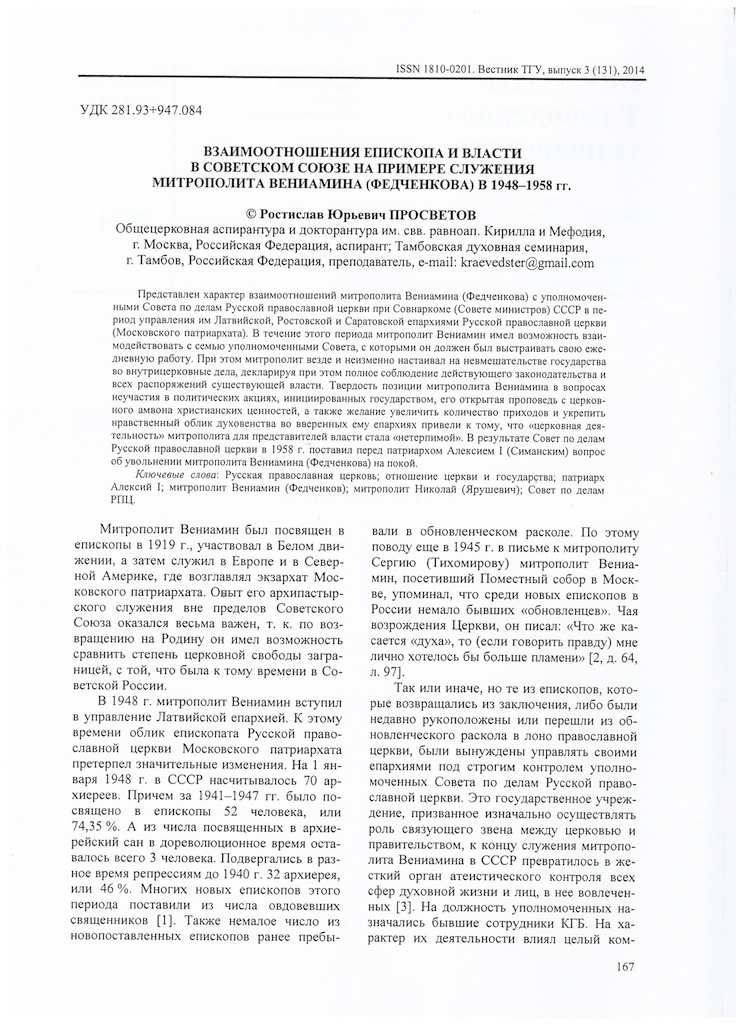Rostislav Prosvetov (Tambov)
In the Soviet Union the relations between the diocesan Bishop and the civil authorities were regulated via the Сommissioner of the Council for the Russian Orthodox Church Affairs. We can observe the development of these relations by the example of Metropolitan Veniamin (Fedchenkov) who consistently headed three Bishop’s Offices in the USSR in 1948 – 1958.
Metropolitan Veniamin was ordained into bishops in 1919, he participated in the White movement, and then served in Europe and in North America, where he headed the Exarchate of the Moscow Patriarchate. The experience of his ministry outside the Soviet Union was very important, as on his return, Metropolitan Veniamin had the opportunity to compare the degree of Church freedom abroad with that in the Soviet Russia.
In 1948, Metropolitan Veniamin returned to the USSR from the USA and entered the Office of the Latvian Diocese. By that time, the image of the Bishop of the Russian Orthodox Church of the Moscow Patriarchate had undergone significant changes.
In 1945, in a letter to Metropolitan Sergius (Tikhomirov), Metropolitan Veniamin, who had visited The Local Council in Moscow, said that there were many former «renovationists» among the new bishops in Russia. Hoping for the revival of the Church, he wrote: «in terms of «spirit» (to tell the truth), I personally would like more flame»[1]. Those bishops who had returned from prison, or had been recently ordained or had moved from renovationary schism to the Orthodox Church, were forced to manage their dioceses under the strict control of the Commissioners of the Council for the Russian Orthodox Church Affairs. By the end of Metropolitan Veniamin’s ministry in the USSR, this state institution, designed originally to serve as a link between the Church and the government, turned into a body of atheistic control over all spheres of spiritual life and all people involved in it[2]. The former KGB members were appointed Commissioners of the Council for the Russian Orthodox Church Affairs. The nature of their activities was affected by the whole complex of factors: the pressure of the local authorities, the instructions of the Council, the position of the diocesan Bishop, the activity of the congregation, and finally, their own vision of the Church issues[3]. During his Episcopal ministry in the USSR, Metropolitan Veniamin was forced to establish relations with seven Commissioners of the Council. In our report, we examine the dynamics of these relations, and summarize the results.

